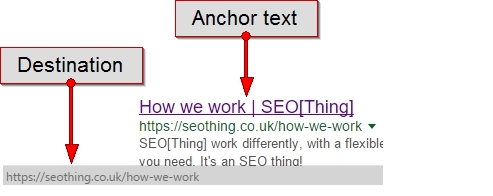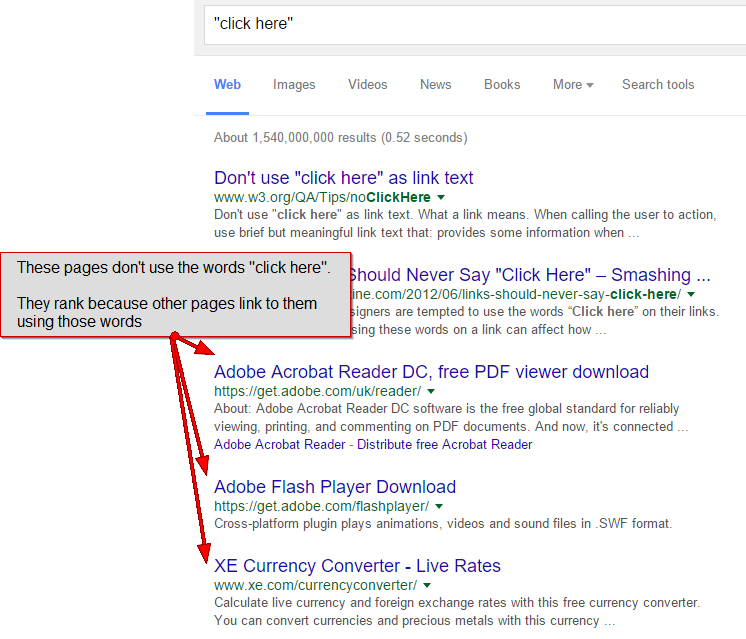As well as allowing search engines to find pages during crawling, links to other pages help search engines understand:
- The keywords relevant to a page
- The relationship between pages
Links are made up of two components:
- Anchor text (the text you click on to visit a link)
- Destination (the URL you will arrive at when you click the link)

Search engines treat words in anchor text as if they were part of the page being linked to. So, the link anchor text ‘optimises’ the page linked to for the words you click on.
For example, a link to http://www.example.com/services/it-management/ might use link text like the below:
This helps the page rank for ‘IT Service Management’.
You can see this effect in the search results below:

When linking to pages, keep this effect in mind.
For the same reason, various common link texts should be avoided, including:
- Click here
- Here
- Link
- URLs (e.g. http://www.example.com/services/it-management/)
- This page
Using these words and phrases inadvertently ‘optimises’ pages for irrelevant words. It’s usually simple to avoid this text by simply linking the most relevant part of your text to a page, for example:
Click here to view our IT Service Management Brochure
This can become:
View our IT Service Management Brochure
What is happening in these cases is that ‘value’ is being passed from one page to another. The more frequently you link to a page, the more ‘value’ it has, and the more important search engines will think that it is.
As a side benefit, users scanning a page for the right link will be able to find links that use appropriate anchor text much more easily.
Using links within content
Aim to link to other pages where it allows users to:
- Visit more specific content (e.g. linking to ‘apples’ from a page about ‘fruit’)
- Visit related content (e.g. linking to ‘vegetables’ from the ‘fruit’ page)
- Navigate ‘back’ to less specific content (e.g. linking to ‘groceries’ from ‘fruit’)
External links
Linking to third party sites is useful for visitors where there are suitable related resources, or to cite references and sources. Search engines also regard external linking as an expected practice for the majority of sites.
That said, search engines see links as implying a relationship of one sort or another between you and the sites you link to. Typically, this relationship is viewed as you “voting” for the quality of a site you link to. For this reason, you should link to sites that you regard as trustworthy and strongly avoid linking to sites that you would not like to be seen as vouching for.
![SEO[Thing]](https://seothing.co.uk/wp-content/uploads/2022/11/seothing-logo-dark-small.png)